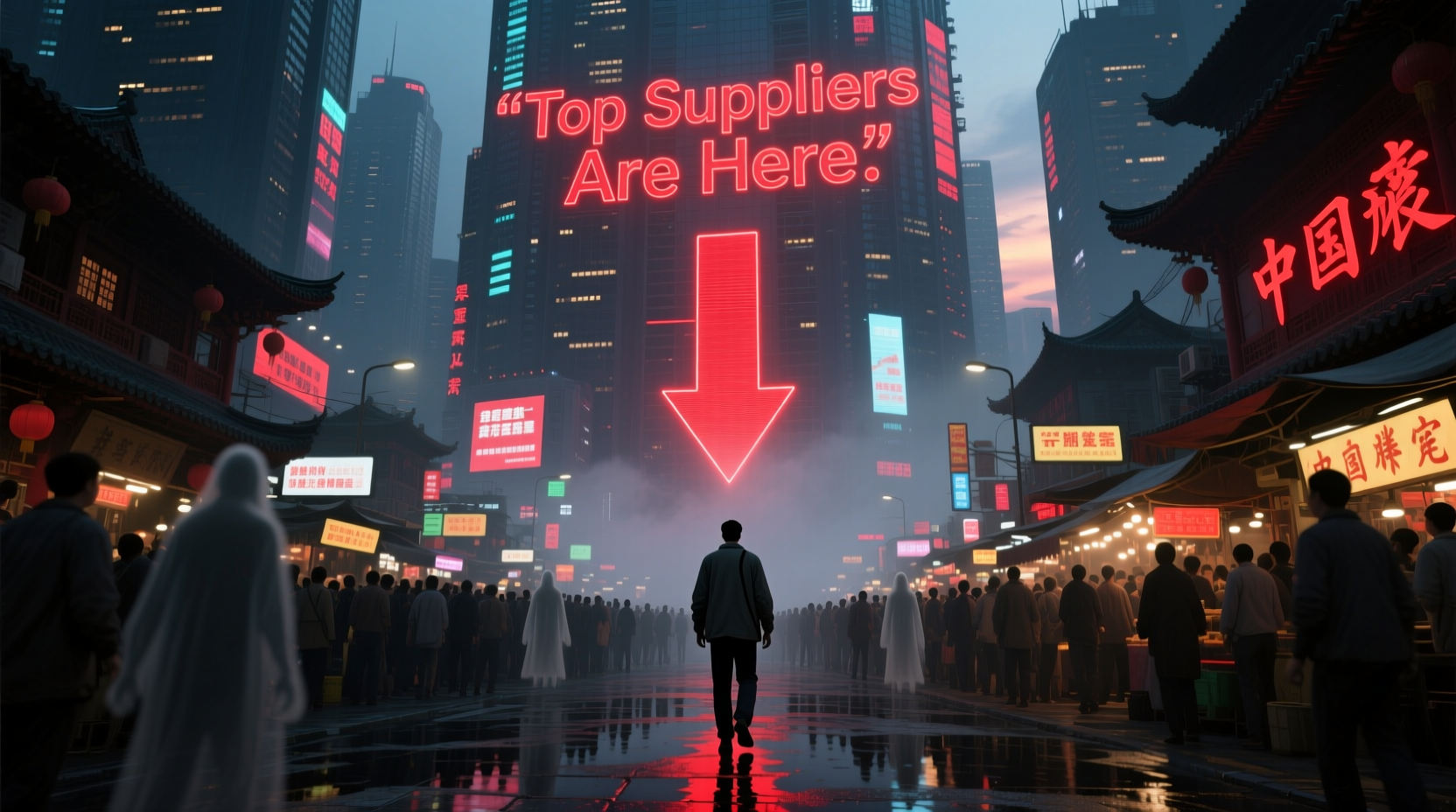Looking for the “Top Supplier ” in China? You’re Chasing a Myth.

by Anton Gora
I’m often asked by clients to help them find the “top” or “best” supplier in China. Many believe there’s some kind of secret list or a well-defined system of rankings and criteria that can quickly and easily determine who’s good and who’s not.
But what unites all these requests isn’t really the question itself – it’s a lack of understanding (often a refusal to understand!) how things really work.
There are no “best” or “worst” suppliers in China. That’s simply not how it works here.
The concept of the best supplier is just another myth in the world of China trade — a convenient illusion, invented to comfort those looking for shortcuts. It’s no more real than the fantasy of “verified factory contacts” or some magical universal scale that accurately measures a supplier’s competence.
There is no “China Top 10 White List” of reliable, verified, high or low-quality suppliers. There are only suppliers that are suitable for your specific situation — defined within the context of your specific task.

So how do you find the right supplier?
There’s usually no installation or assembly guide, even in To find a suitable — or as some say “your own” — supplier, here’s what you need to do:
1. Conduct a proper search and analysis
Not just Googling. You need to filter carefully and thoroughly, taking into account Chinese specifics, mentality, business culture, and an understanding of how the “Chinese matrix” works. Without experience and certain skills, it may not work on the first try.
2. Hold initial negotiations
Study the company, talk to them, sense their style, evaluate the bigger picture. Much becomes clear even at this stage. Sometimes — everything. You’ll already be able to draw some early conclusions.
3. Run a test order
Do at least one deal as a trial. This is the real filter. A supplier reveals who they truly are only when you’re working together — especially when there are complications, misunderstandings or something goes wrong. A “verified” supplier is like an umbrella — until it rains, it looks perfectly fine. From your side, you’ll need more than luck: skills, attention, and the ability to read the signs.
4. Build the relationship
Maintain and develop the relationship. Yes, that takes time, cultural awareness, understanding of the language, and sensitivity to the Chinese worldview. But in China, strong cooperation is built on real human relationships only. Without that experience, even a decent supplier relationship can break down before it really begins.
China works with people, not companies.
That’s a rule. A quiet one — but an absolute one. Ignoring this fact and believing in lists, shortcuts or 5-minute formulas is the fastest way to disappointment.
Finding the right supplier is not a click-and-go action or instant decision – it’s a process. One built on trust, trial, adaptation and reflexes earned from dozens of experiences.
Any “magic solution” might give you the illusion of progress — but it won’t give you a reliable supplier.
You may think you’re saving time by searching for shortcuts — but in China, shortcuts often lead to dead ends.
© 2026 SinaFirst Limited.


